Libi Medical
medical devices for low-resource settings
| Home | Contact Us | News |
fetoMic
a phonocardiography approach to low-cost fetal monitoring
By Yahia Ali, Hannah Geil, Elizabeth Kappler, and Elianna Paljug
@ Georgia Tech BME
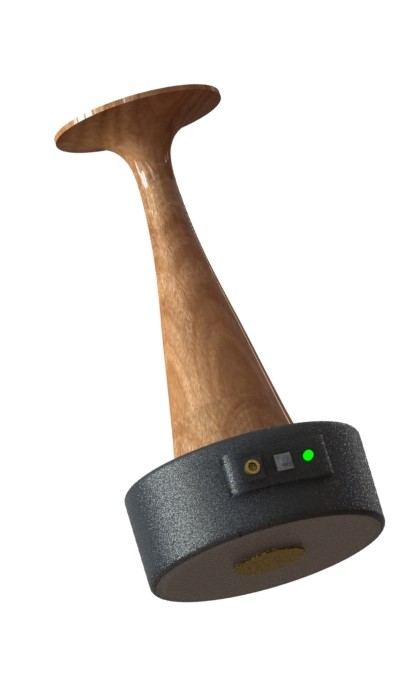
Ethiopian hospitals need fetal heart monitoring technology that withstands their unique conditions of use. Access to practical, intuitive, and repairable fetal heart monitors would help ensure that Ethiopian caregivers have the tools they need to achieve the World Health Organization’s standards of intrapartum care.[1]
Target Users
- Doctors, nurses, and midwives
- Pregnant mothers
- Ethiopia’s Pharmaceutical Fund and Supply Agency
Current Solutions
- Pinard Horn or fetoscope (manual auscultation)
- Cardiotocography (CTG) machine (Doppler ultrasound + uterine contraction sensors)
- Handheld Doppler
Problem Space Research
Libi Medical conducted 19 interviews in Ethiopia and 30 interviews in the United States to get a broad view of the problem from both medical professionals and engineers.
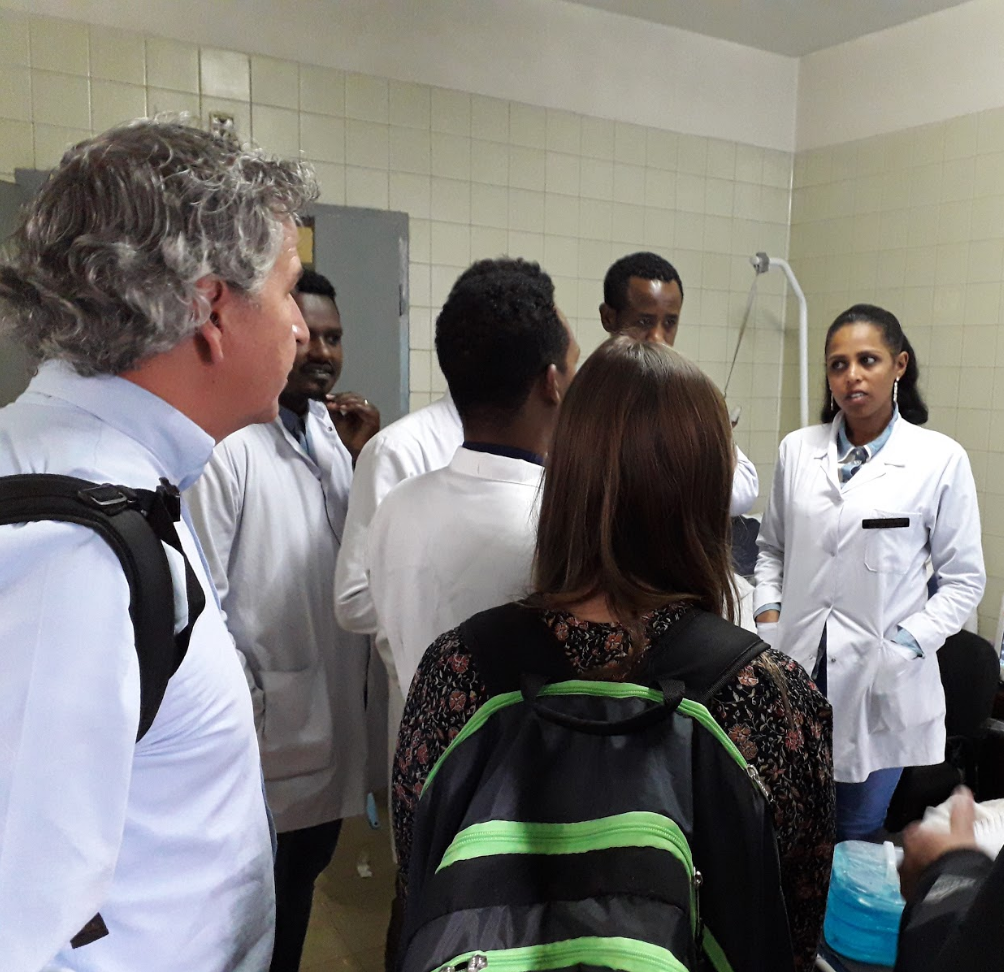
Key Findings
- Fetoscope measurements are time-consuming and inconsistent
- CTG and handheld doppler probes break easily and are irreparable
- Ethiopia annually imports $103 million in medical equipment and produces none. [3]
Prototype
Rendering
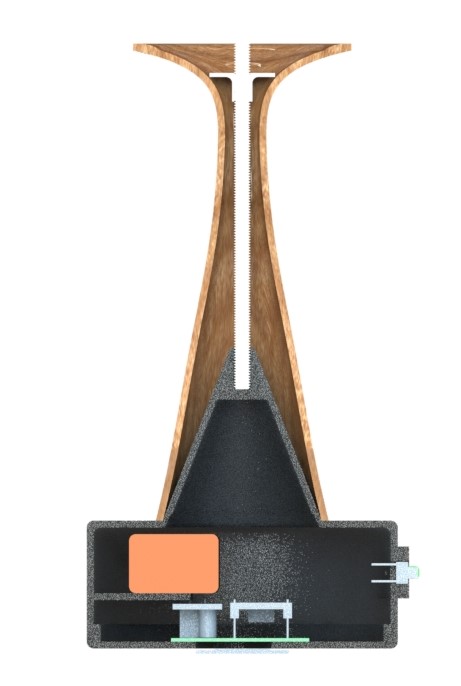
Usage
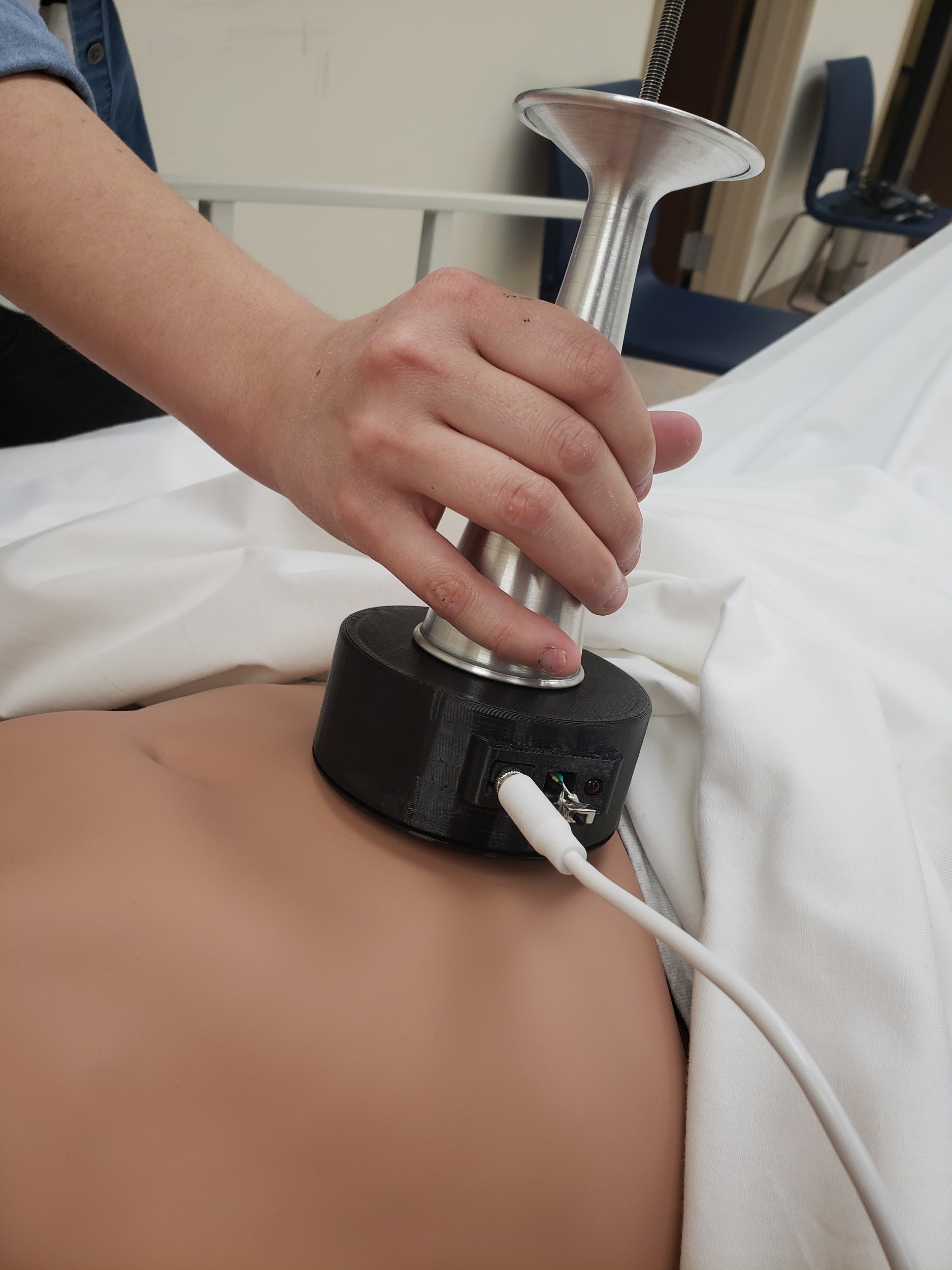
Circuit

Testing
The team used ballistic gel to model the sound conductance of the uterus and a speaker inside the gel to play fetal heart sounds.
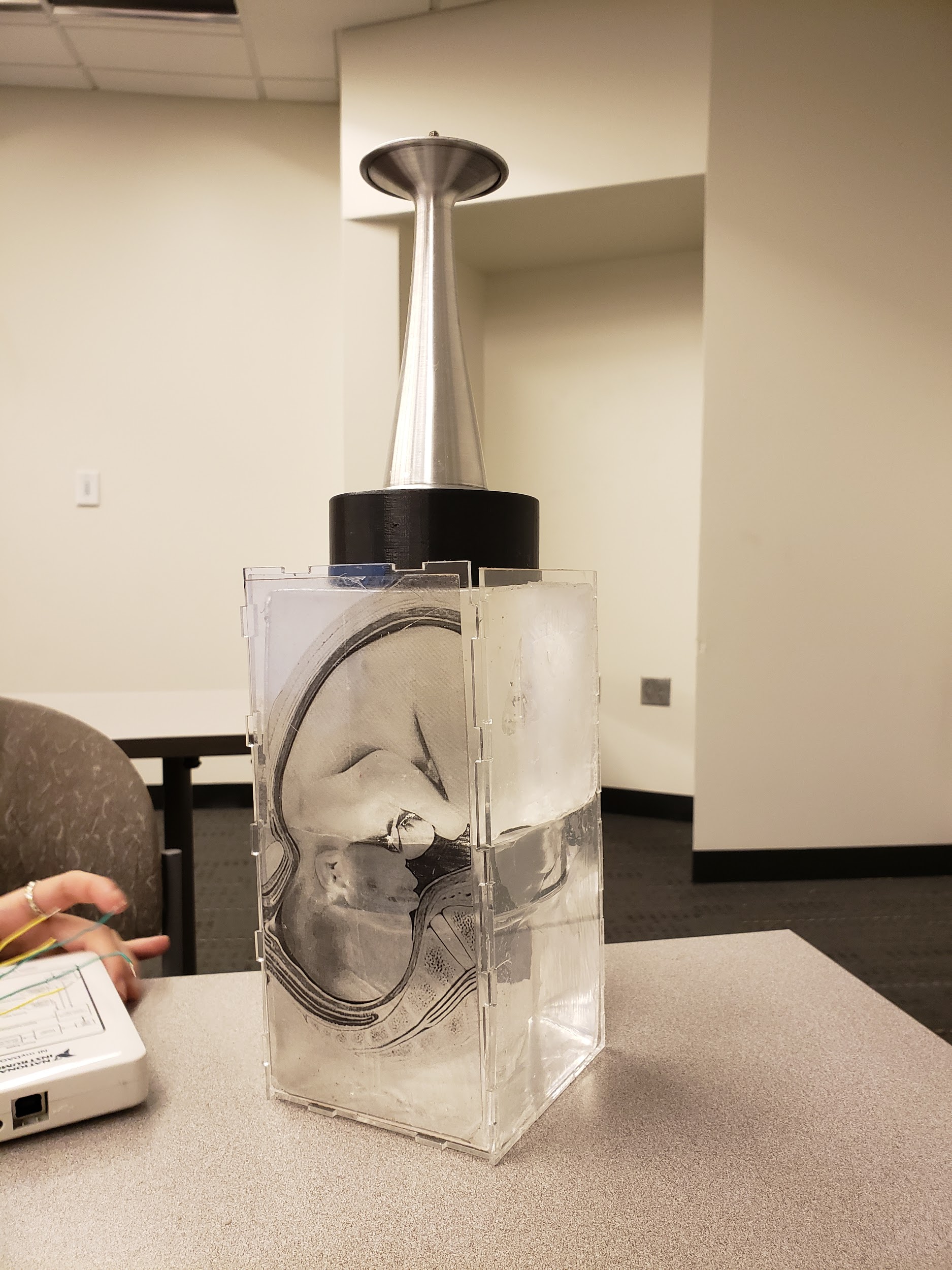
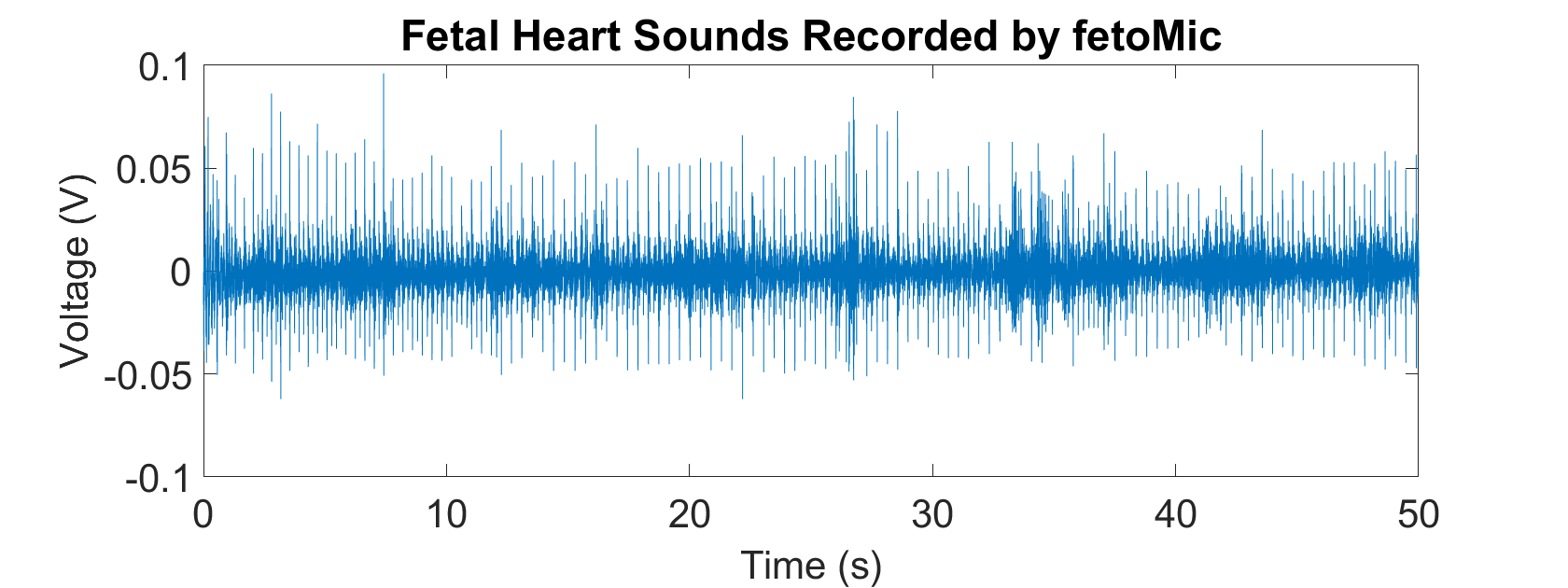
Conclusion
- Developed a durable, low-cost electronic fetal monitoring solution for Ethiopian hospitals
- Improved upon traditional fetoscopes by amplifying heart sounds and adding isolation from air sound
- Ensured easy maintenance and repair through the use of simple electrical components
Next Steps
- Clinical trial at Black Lion Hospital in Addis Ababa, Ethiopia
- Transfer of manufacturing to the Biomedical Engineering Department of Addis Ababa University
References
- World Health Organization. (2018). WHO recommendations: intrapartum care for a positive childbirth experience. Retrieved from https://www.who.int/reproductivehealth/publications/intrapartum-care-guidelines/en/
- Central Intelligence Agency. (2018). The World Factbook: Ethiopia. Retrieved from https://www.cia.gov/library/publications/the-world-factbook/geos/et.html
- The Observatory of Economic Complexity . (2018). Ethiopia. Retrieved from https://atlas.media.mit.edu/en/profile/country/eth
Acknowledgements
- Dr. Mahlet Yigeremu, M.D. (Sponsor at Black Lion Hospital)
- Dr. James Stubbs, Ph.D. (Advisor at Georgia Tech)
- Dr. Rudy Gleason, Ph.D. (Advisor at Georgia Tech)
- Kelsey Kubelick (Regulatory Affairs at Georgia Tech)
- Dr. Timothy Hsu, Ph.D. (Acoustician at IUPUI)
- Brice Williams (Teaching Assistant at Georgia Tech)
Copyright © 2018 Libi Medical. All rights reserved.